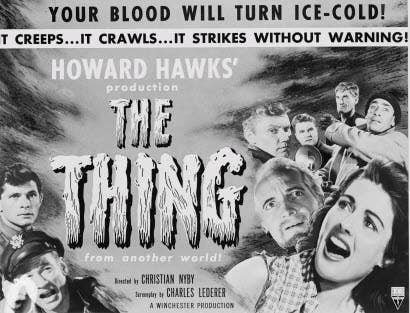Daglow: Consoles, big publishers not going anywhere
Industry veteran says digital revolution won't eliminate established roles, notes that many designers "give short shrift" to marketing
The rise of digital platforms, smartphones, tablets and crowdfunding from the likes of Kickstarter has afforded today's game designers many great opportunities, but also many new challenges. Getting a game noticed in a digital marketplace is certainly one of the larger challenges. Games veteran Don Daglow gazed into his crystal ball in a recent interview with GamesIndustry International, and noted that there will always be a need for the big boys of publishing like EA or Activision, even a decade from now when packaged goods might no longer be relevant.
"My crystal ball says that big publishers are still an important part of the landscape in 10 years," he says. "I just think that they will function differently than some of the models we see today. My guess, my instinct, is that, first of all, we're going to continue to have big blockbuster games on consoles and various platforms that will come from long term dedicated in-house teams of publishers... The exact structure may metamorphose a little bit."
Marketing and publishing go hand-in-hand, and while many upstart developers have embraced digital and self-publishing, it's not always the smartest move.
"If anything, I would think that some of the publishing partner programs from the really good publishers may get bigger 10 years from now"
Don Daglow
"I also think, one of the things that game designers sometimes give short shrift to, is how important good marketers are. As we get into online direct to consumer sales, the line between a salesperson and a marketing person blurs more and more, but there are fabulous people who work inside the publishers who really understand how to go out and acquire players, how to match players that they're going after with their marketing with the games those people will really enjoy," Daglow continues.
Daglow notes that the best game marketers can actually enhance the experience for a fan base, rather than being seen as some nuisance or disturbance.
"What we all hate is junk mail. Ok, they wasted part of a tree and they sent me something I'm not interested in. Brilliant marketers know how to go out and help people find games they want to play. So instead of being mad at the marketer for sending them junk mail, they're thanking the marketer. 'Oh, hey, this is cool.' And, in effect, they're thanking the marketer for doing that. That isn't a skill that just everybody can have and sometimes those in the game design community live under the illusion that we're also marketers," he says.
"It's a different specialty and the people who are good at it are incredibly good and they enhance the game experience. That knowledge, I think, is going to stay heavily concentrated in publishers. It's going to be more generally available than it was. But the idea of the publishers falling apart and ceasing to be I don't think is the case because I think the publishers are going to have that kind of skill they can bring to bear. And I think especially for smaller teams, newer teams, teams that don't want to think about those things, I think that the publishing partner model, if anything, I would think that some of the publishing partner programs from the really good publishers may get bigger 10 years from now and broader than they are now."
While mobile gaming has been one of the biggest drivers of digital growth, spurring on many a developer to self-publish, the big budget, triple-A console titles will stick around. Mobile is growing in importance every day, but it's not ever going to replace that in-depth console experience, Daglow insists.

"I think that 10 years from now - I think you have to go out 10 years for it to get really interesting, because that's when you have a chance for things to just completely make your brain fall out with the change - I think that having a box that is attached to the big living room entertainment screen that gives you really high quality visually stunning game play, I think that that is still going to happen," he says. "Now, the question is whose box is that going to be and exactly what is that box going to be like? What do we know about that box? Well, it's going to have to be like what we currently call consoles in order to deliver that visually stunning interactive gaming experience."
"There are some things that none of those [mobile] formats can do the way console does on that big TV and I think that that is going to continue to be a very real market," Daglow continues. "There are business issues right now, some of which I think technology is going to make moot. What processor will be in that box? That's going to be a very interesting war. Clearly that box is going to be connected. Who is it going to be connected to? Is it going to be connected to what we today think of as a cable company? Is it going to be what we today think of as an internet connection? Is it going to be some other kind of connection we haven't even thought of yet that the telephone company or somebody else tries to come up with? What I think we do know is that it is a combination of power, big screen, and connectedness, that will unlock the economic potential of those boxes."
Regardless of how players get their games in the future, the great thing that digital is enabling for developers is that direct connection to the audience. And listening intently to the audience is probably the most important thing for today's game makers and those of the future to do.
"I think in some ways there are some similarities where you could say we're like the movie business in 1951"
Don Daglow
"What digital delivery does is it makes the art of listening to your player utterly central to your life. We used to sit around and build games for a year and a half, two years, even three years, having some player contact, knowing how we felt as players, and then you made this judgment call about what you thought would please players. And if what you thought was right, then people would say a lot of nice things about you. If your judgment call was wrong, it wasn't such a good feeling," Daglow notes.
"Now you have this continual dialogue, where a lot less of it is a matter of doing some research and listening and then estimating, but a lot more of it is about continually listening... we hear what they say and what they don't say over time and we're not asking them to design the game for us, but because we know them and like them and are in touch with them, you get a feel for them and once you have a feel for them that's where being a game designer comes in. Because once you have a feel for them you get an indication. That's a cool feeling. I like that way, way better than the old days of do your research, guess, and hope that people like your game design. This contact with players - there are days when it's frustrating, but I find it really, really exciting," Daglow adds.
With Steam, Facebook, iOS, Android, free-to-play and more gaining prominence, even the last five years in the games industry have been a whirlwind of change. Considering that the first commercially available video games were created in the early 1970s, that puts the industry at around 40 years old. And Don Daglow has witnessed it all, so how does he view the state of the games business compared to other entertainment industries?

"I think in some ways there are some similarities where you could say we're like the movie business in 1951 because television at that point came along and people started to say, 'Wait? You can stay home and watch this? You don't have to go to a movie?' The movie business changed in fundamental ways - a lot of people predicted its death for years. I remember reading articles like that when I was a kid growing up, and the reports of its death were greatly exaggerated but the movie business changed in many fundamental ways in order to continue operating as a business and entertain people. But the movie business still has this wonderful place in our society. And TV is a completely different beast that exists alongside it," he observes.
"It is not a perfect analogy, but I think there are some comparisons; we have new kinds of games, we have new business models that are emerging for the games industry, and all these new ways to reach new players and new ways to entertain old players... And that dictates fundamental change for what had been our dominant piece in the console business. On the other hand, this is why I keep coming back to ten years from now and that screen on the wall in the living room. I think that just as film adapted to the presence of television, I think that something similar to what we think of as consoles is going to adapt and prosper alongside all those things we're seeing now."

